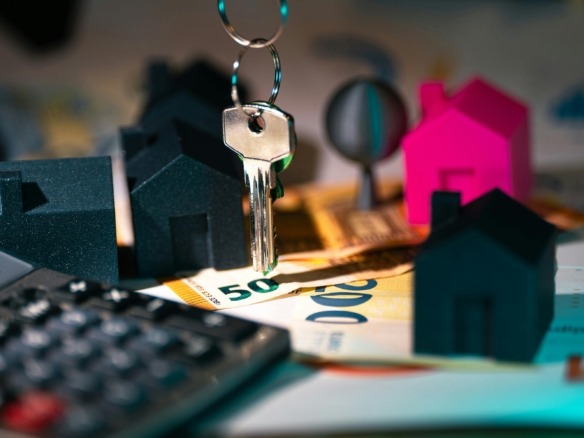Are you looking to buy a new home or refinance your current one? If so, you’re probably wondering how to get the best mortgage rate. While there’s no one-size-fits-all answer, there are some steps you can take to increase your chances of getting a favorable rate. Keep reading to learn more.
Understanding Mortgage Rates
When you are looking to buy a home, you’ll need to compare mortgage rates. The mortgage rate will determine how much your monthly payment will be, so it is important to get the best rate possible. Be sure to shop around for the best rate, as your quotes may differ between lenders. Compare interest rates and terms offered by different lenders before you make a decision, and don’t be afraid to contact as many lenders as possible. To expedite this process, try to get pre-approved for a loan right away, as this will let the lender know that you are serious about buying a home and that you have been approved for a certain amount of money. And since you’ve provided plenty of identification through this process, you’ll receive an accurate quote quickly.
If you already have a lender in mind, feel free to negotiate interest rates and terms with them. Many lenders are willing to work with buyers to close the deal. One of the biggest factors determining your mortgage rate is your credit score. Make sure you keep your credit score as high as possible by paying your bills on time and not carrying too much debt. A high score will increase your likelihood of negotiating a better rate. Additionally, you should ask friends and family for referrals of good mortgage lenders. Working with someone through a referral makes you less likely to encounter any issues during your homebuying process.
Deciding on a Term
When it comes time to get a mortgage, several factors will go into the interest rate you’re offered. The term of the loan is one such factor. Your term is the length of time during which you have agreed to make payments on your mortgage. There are a few reasons for this difference in rates. With a shorter term, you agree to pay off your mortgage more quickly. This means that you’ll pay more each month than someone with a longer-term mortgage, and lenders can charge more for that increased risk. In addition, since short-term mortgages come with less risk for the lender, they are typically easier to obtain. This is another reason why they tend to carry a higher interest rate.
If you know you want to sell your home within five years or so, then opting for a shorter-term mortgage may make sense. This way, you won’t pay as much interest overall as you would with a longer-term loan. However, if you plan on staying in your home for many years, then locking in at a lower interest rate by choosing a longer term could be the better option. There are a few ways to get an ideal mortgage rate. One way is to pay off your mortgage faster with bi-weekly payments. When you make bi-weekly payments, you essentially make one extra monthly payment per year. This will help you pay off your mortgage sooner and save money on interest. In addition to making bi-weekly payments, you can also try to choose a shorter amortization period (e.g., 25 years instead of 30 years).
Considering Added Costs
You’ll want to include a sizeable down payment to get the best rate. The added cost of a down payment is often the most challenging part of buying a home, but the benefits are more significant the higher your payment is. The payment amount can vary but is typically around 20 percent of the home’s purchase price. If you’re a first-time homebuyer, you may be eligible for a reduction in your down payment without sacrificing your rate and many other perks. If your down payment is less than 20 percent, you may be required to pay PMI, which protects the lender if you default on your loan.
There are also several fees involved with getting a mortgage. For example, an origination fee is a fee the lender charges for processing your loan. An underwriting fee is for your lender to review your loan application and determine your eligibility. Other notable fees include the processing fee and appraisal fee. You should also be prepared to pay closing costs, which typically amount to two to five percent of the loan amount. The interest rate you receive on your mortgage is based on several factors, including your credit score, the type of mortgage you choose (fixed or adjustable), the amount of money you borrow, your loan term (15-, 20-, or 30-year), and the lender issuing the mortgage.
It’s best to research and get the best mortgage rate possible to save money long-term. By following this guide, you’ll find many ways to get the best mortgage rate, and it’s crucial to compare rates and terms from different lenders to find the best deal.




